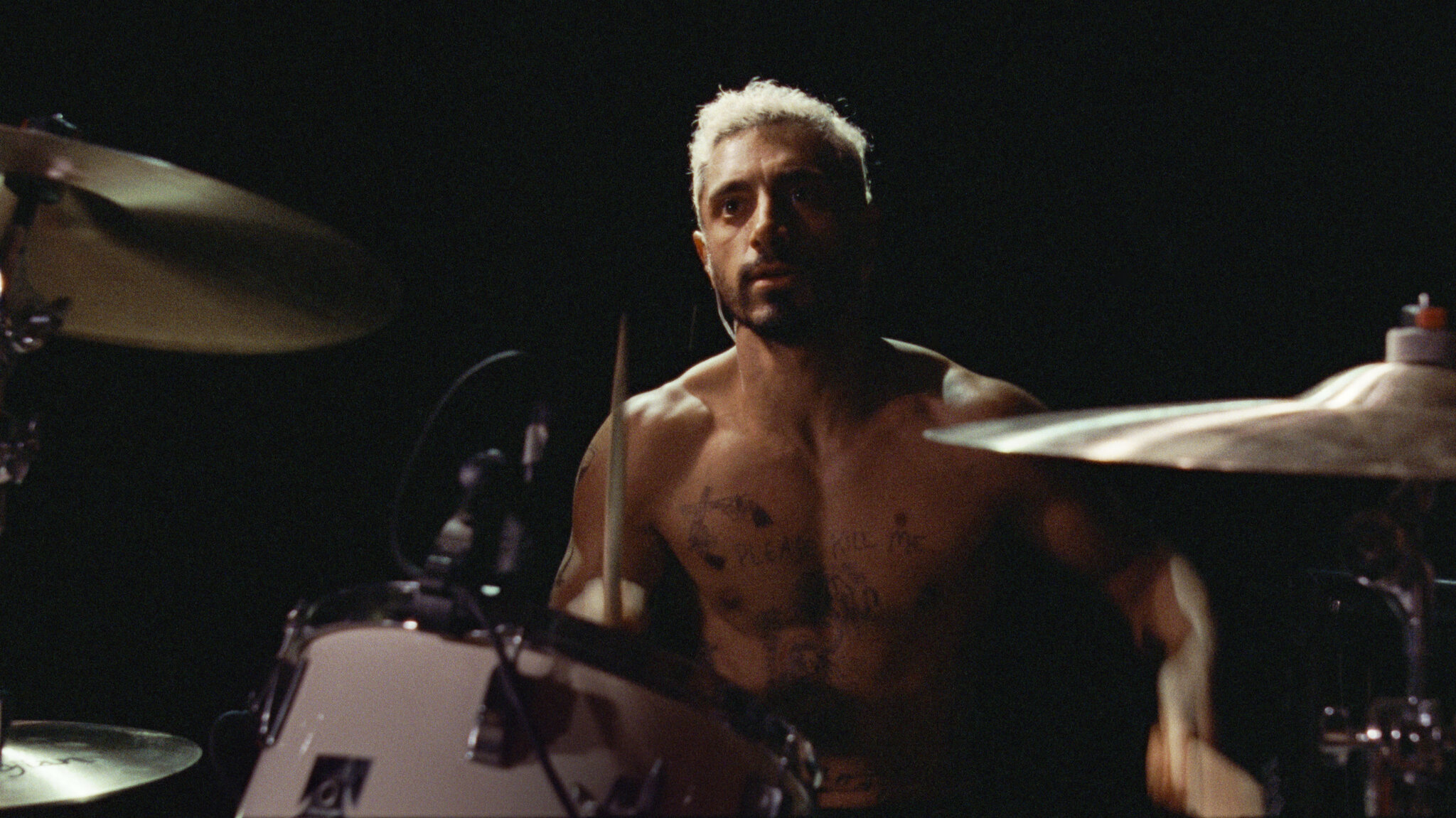To the woefully uncoordinated (a club of which I am a lifetime member), drumming is a feat just short of a miracle. Major props to Riz Ahmed, then, for learning to drum in a matter of months for Sound of Metal. Ahmed plays Ruben Stone, half of a post-punk/metal duo called Blackgammon, and his recently acquired drumming skill is impressive enough to drop a few jaws—it’s not the kind of thing you can replace with a machine. The same cannot be said, however, for Ruben’s ears. After another night of thrashing and screaming on tour, Ruben’s hearing starts to rapidly disappear, and he’s forced to consider that his career is coming to an abrupt end. Not the kind of news anyone wants to hear.
Ruben’s partner and bandmate Lou (Olivia Cooke) is rightfully worried about his mental state, especially since he’s a recovering drug addict. Sound of Metal’s early scenes between the two of them—sore, angry outbursts of confusion and reckoning as they navigate Ruben’s new reality—are immediate stunners. Ahmed’s performance is one of manic, barely repressed collapse; every fiber of his being clenched down to afford mental spiral no quarter. Opposite from him is Cooke, her face an absolute splatter portrait of pain, sympathy, and fear. Both actors seem to implicitly understand that the price their character would pay for succumbing to their demons is the loss of their partner, though such a thing is never spoken. The stakes are each other, and that’s all in the performances. It’s almost too much to bear.

It’s no stretch of the imagination to assume that writer/director Darius Marder was supplying his leads with invaluable feedback, given his tight control over the film at large. That’s preeminent in the sound design. Once Ruben’s hearing starts going, the sound mixing blurs and distorts to emulate a deteriorating sense of hearing, perfectly replicating the ring of post-concert tinnitus. Marder keeps the camera close to Ruben’s head during these moments, enclosing the viewer between Ruben’s ears both visually and aurally. Deafness isn’t a lurking inevitability in Sound of Metal; it’s a here-and-now feeling that the audience participates in. We join in Ruben’s alienation when we’re also straining to hear the dialogue, and it’s as frustrating for us as it is for him.
Marder is wise to prolong this feeling of alienation even as we become used to Ruben’s new soundscape. When Ruben arrives at a deaf community where he’ll spend much of the film, Marder refuses to provide subtitles for ASL, treating hearing viewers to the disconnection felt by deaf viewers in 99% of theaters across the world. This forced experience, in concert with Ahmed’s live-wire anxiety, gives Sound of Metal the rawness of an open wound.
The movie languishes in its midsection, though, never finding the empathetic power of Ahmed and Cooke’s early scenes in Ruben’s time with the deaf community. It instead follows the well-worn footsteps of other “recovery” movies, showing us bits and pieces of Ruben getting to know new friends, begrudgingly learning to embrace the community exercises, and learning ASL with a classroom of kids—but none of these interactions are given sufficient time to develop new characters. The people that Ruben apparently grows closest to don’t even have names—there’s no room for Ahmed to bounce his performance off of anyone even remotely as difficult or complex. He becomes an achingly real presence in an imitation movie.
Thankfully, Sound of Metal sticks the landing. The viewer’s vicarious, experiential connection to the protagonist makes any detail of the third act a spoiler—feeling it as if you’re feeling it for the first time is precisely the point—but in general terms, the finale brings the movie back to its strengths. The simplicity of what Marder makes us feel at the tail end of Ruben’s ordeal is overwhelmingly moving, but that’s something you should close your ears and see for yourself.
★★★★ (4/5)




